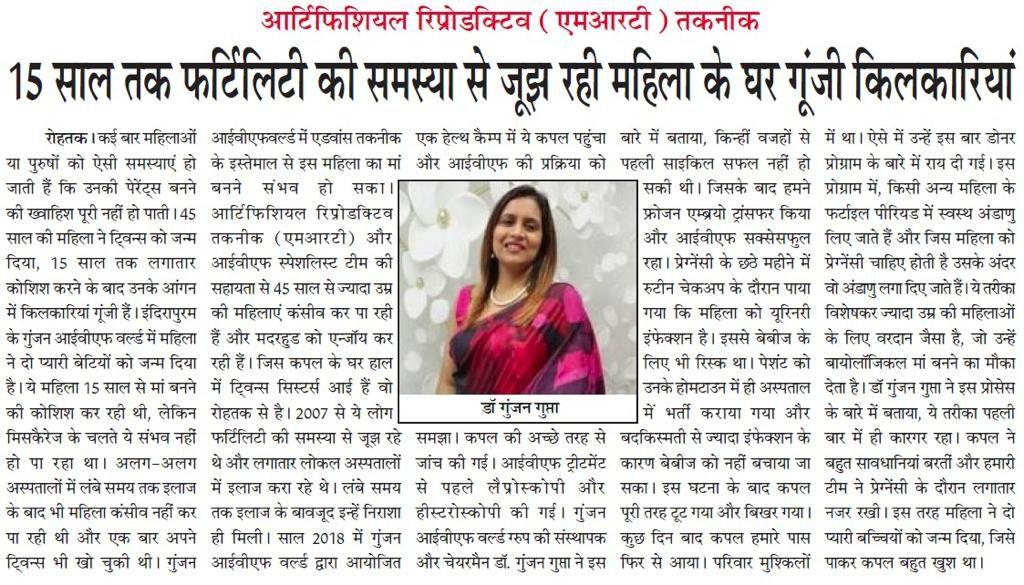Ultrasound Scan

Overview
An ultrasound scan is a painless test that uses sound waves to create images of organs and structures inside your body. As it uses sound waves it is considered safe. Doctors recommend an ultrasound to monitor the baby and its movement. It helps them to analyze the growth parameters and position of the fetus inside the womb.
During the initial stages of pregnancy, USG tries to detect any sign of abnormalities in the growth of the fetus. In India, gender revelation is illegal but the parents get to know about the baby’s gender through ultrasound in foreign countries. At present, the technology is upgrading and 3D and 4D color scans are the results of it. During the time of pregnancy, these provide high-quality images of the baby.
Everything You Need to Know About Ultrasound Scan
Time and Need | Is it Painful | Preparation and Process | Risks or Side Effects
The time and need of doing sonography during pregnancy
Doctors recommend the ultrasound scan to confirm the growth of the baby during pregnancy. Besides, it also ensures the implantation of the embryo. There are some reasons behind doing the ultrasound in early pregnancy.
- It helps in detecting ectopic pregnancy.
- You can avoid complications in pregnancy if you have an ultrasound.
- It gives you confirmation if you are pregnant or not.
- You will get to know about the growth and development of the baby.
- Doctors get to see if the child has any congenital disabilities or genetic abnormalities.
It would be best if you follow certain steps during the initial stages of your pregnancy.
- During the first trimester of your pregnancy, you will need a viability scan and dating scan.
- An ultrasound scan can help you to discover your due date.
- You will get to listen to the heartbeat of the baby for the first time in six weeks.
- It helps to check the number of babies you are having in your wombs and also gives confirmation if your baby is in the correct position or not.
- Doctors get to know about the reason behind spotting or excessive bleeding through images.
During the second trimester, doctors recommend ultrasonography. In foreign countries, people get to know about their child’s gender, but this is not applicable in India.
- It helps in the assessment of the growth of the fetus.
- This growth scan can detect congenital abnormalities and birth defects in the birth of the baby.
- You need to know if your baby has Down syndrome or any other genetic disease.
During the third trimester, doctors usually avoid a transvaginal scan. It would be best if you went through a regular ultrasound.
- It will help you with any anomalies in the anatomy of the baby.
- You will also get to see if your baby is growing according to medical diagnostic reports or not.
Sub Treatments For Pregnancy Care
We are one of the Best IVF Clinic in Delhi NCR!
51.8K
Subscribers
4.6 (383 reviews)
4.5 (409 reviews)
3.5 (254 reviews)

5 Out Of 5
Is it painful?
In general cases, sonography is not painful. They use the transducer during the ultrasound procedure. Its pressure can hurt you if you have any pelvic injuries or existing abdominal pain. Let the doctor know about it.
Preparation and process of ultrasound during pregnancy
Few preparations are necessary before going through an ultrasound scan for pregnancy. You need to fill your bladder with water. Before going for an ultrasound scan, you need to drink two to three-ounce glasses of water. This helps in getting a clear and high-quality image. You need to keep your bladder full during the process and do not urinate before completing. The process of ultrasound includes some procedures.
- During the ultrasound, a gynecologist doctor will ask you to lie down on an examination table of the clinic.
- They will apply a special gel to the abdomen and pelvic area. The base of the gel is water, so it will not stain your clothes.
- The sound waves get help from the gel to travel.
- After that, the technician will place the transducer on the belly. By moving it on the belly, they will capture black and white images on the ultrasound screen.
- They can measure the image as well.
- You need to hold or move your breath at the time of taking an image on the screen.
- They check the captured images if it has necessary details and if it is clear or not.
- In the final step, they wipe off the gel and ask you to empty your bladder.
The requirement of ultrasounds is for judging the health and development of the baby. A trained professional should carry out ultrasounds to analyze the images. Your doctor can recommend you to have other ultrasound procedures if he suspects any abnormalities during the ultrasound.
Risks or Side-Effects of Ultrasounds during Pregnancy
Many people ask us if there is any risk of doing an ultrasound during pregnancy. The answer is no, a woman can go through ultrasound scans during pregnancies with no known side-effects. It is safe and helps to ensure the development of the baby in the womb.
If you want to identify the specific organs that indicate the baby’s growth, you can ask to point them out. This procedure does not hurt during normal circumstances, but if you feel pain, let your doctor know about it. To get better images of the growth scan, you need to drink plenty of water before the procedure.
Patient Guide
Along with treating our patients, we also guide them with the help of our educational blogs and videos.
Educational Blogs

Why do blastocyst not implant?
The reasons for an unsuccessful implantation are very uncommon and rare as well. Blastocyst provides a greater chance of becoming pregnant therefore the procedure is handled properly as well.

What happens after blastocyst transfer?
Before jumping to the immediate question first let’s have a small brief of what is blastocyst transfer. Blastocyst transfer is the transfer of embryos that have achieved a higher stage of development.

Can blastocyst fall out?
Maximum patients worry about what they can do or cannot do after an embryo transfer. They have the fear that if they do something wrong, the embryo would not attach or fall out.
Educational Videos

What is TORCH test in infertility and why is it done?
There are numerous tests that are available to infertile couples that are recommended by some doctors, which might help them determine the cause of their infertility. One such test is the TORCH test.

What is Prolactin Hormone?
Prolactin is a hormone produced by the pituitary gland present at the brain’s base. It is best known for its role in lactation, or milk production, in breastfeeding women.However, Prolactin also plays other important roles in both men and women, such as regulating the immune system, stimulating the growth of new blood vessels, and influencing behaviour and reproductive function. In this blog, we will explore what Prolactin is, how it works, and what happens when there are imbalances in prolactin levels.

Frequently Asked Questions about Low AMH
Primordial and Preantral follicles produce AMH. So the AMH level indicates the number of eggs or egg reserves you have in your ovary. Putting simply, if your AMH level is low, then the number of eggs in your ovary is less.
Frequently Asked Questions
Can obesity or being overweight have an impact on a man’s fertility?
Comprehensive Fertility Treatments | Gynaecology Procedures | Menopause Management | Pregnancy Care | Maternity & Birthing Call +91-9990044555A short article by IVF experts...
Does testicular temperature have an impact on male fertility
IVF specialists of the best IVF centre in Ghaziabad – Gunjan IVF World share an informative blog on one of the most ignored factors of male infertility. It is an alarming fact to...
Is male menopause a myth or reality ?
IVF specialists of the best IVF centre in Ghaziabad – Gunjan IVF World debunk the myths about male menopause through this informative blog Menopause as a term is extremely common...















